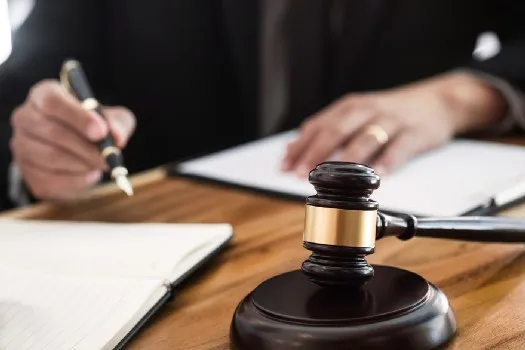I got a restraining order against my COVID-denying next-door neighbor

I will call my assailant, “Mr. Covid.” His actions had already generated two separate police calls (from others) for assault in the previous three months. My situation was a little more subtle.
People frequently refer to “assault and battery” as if it were a single thing. But they are two different things, though close cousins. While assaults attempt to cause bodily harm, battery is the act of following through on the threatened assault. Assault is defined in California as:
“an unlawful attempt, coupled with a present ability, to commit a violent injury on the person of another.”
In most states, there are various categories of assault, all of which carry different penalties, including jail time and fines.
My life has, unfortunately, involved lots of health battles and 24 surgeries to date. I have some fairly significant visible orthopedic disabilities that require me to use either a cane or a wheelchair most of the time. I have leg braces that are always visible on the outside of my clothes. I am also a type 1 diabetic with rheumatoid arthritis and am on a daily immunosuppression regiment. The combination of these problems has resulted in extremely poor balance. If I fall, which happens all too often, about 50 % of the time, I end up with a fractured bone. Severe kyphoscoliosis limits my lung capacity, and I’ve had pneumonia several times. My life is pretty amazing given all of these issues, but 2020 has never left me far from the fact that I am one COVID exposure away from becoming a statistic. This is especially important to me as these events occurred in the post-Thanksgiving COVID hospital surge and people with disabilities have a two to eight times higher rate of death from COVID.

Photo by Aaron Clinard on Unsplash
While out for my daily socially distanced exercise on my property, Mr. Covid approached me without a mask with his dog. As soon as Mr. Covid stepped off the road onto my property, I reminded him that I didn’t walk well and the large dog, while friendly, was extremely energetic — I was afraid it would bump into me, and I would fall and injure myself. I also reminded Mr. Covid that I was very immunocompromised, and he was blocking access to my car, which contained my mask. I asked Mr. Covid to stay six feet away from me or move away from my car so that I could get my mask.
He laughed, and said, “You know COVID’s not real, right?”
Of course, he did none of the things that I requested. If he had, I wouldn’t be writing this story.
As I was trying to figure out how to extricate myself from the encounter while minimizing my potential harm, the following pattern kept repeating itself:
Mr. Covid frequently got closer than six feet to me and followed me as I dangerously (for me) stepped backward, attempting to maintain a six feet distance.
Mr. Covid would throw a ball past me for his dog to fetch.
I would turn away from Mr. Covid watching the dog, afraid it would bump into me, resulting in a fall and possible fracture.
While I was turned, Mr. Covid repeatedly closed the distance between us to 3–4 feet.
I faked a call from work to get out of the situation. I later realized when replaying the event in my mind while writing the report that Mr. Covid was likely deliberately throwing the ball in a way to have the 100-pound retriever run as close to me as possible on her return trip.
After discussing this incident with one of the other people Mr. Covid had assaulted, we decided to apply for a restraining order. The process was not difficult. Mr. Covid was served with the order a little under two weeks after the event took place and is no longer allowed to be within 50 yards of either of us.
I worry about what would have happened had this been Mr. Covid’s first assault charge and not his third in two months. I suspect it would have been substantially more difficult to obtain the order.
Having completed law school and being a native English speaker made it simple for me to generate a good affidavit, and I didn’t have to hire an attorney. What if my native language weren’t English, or I didn’t have this pre-existing legal experience?
Although neither of these points is directly related to the danger I experienced, the restraining order outcome might have changed if either of these facts had been different.
Mr. Covid still lives next door to me, but thankfully, I haven’t seen him in the two weeks since the restraining order was issued. Three things have changed for me:
I never go anywhere (not even on my own property) without my mask and my phone in my pocket.
I don’t go anywhere without making sure someone knows where I am going and when to expect me back.
I am rethinking my life-long anti-gun stance.
I don’t appreciate these changes in my life or the stress they have caused, but I was privileged to have the law side with me. Others might not be so fortunate. Be aware, and help people with disabilities like me to not become statistics.
Add a comment: